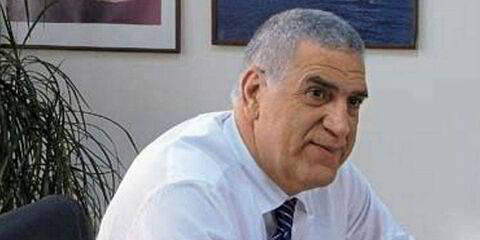For Greek ship finance, the flavour of the month, or, in reality, of the past few years, has been private equity.
Billionaire investor Wilbur Ross reckoned a few months ago that private equity had pumped some $16bn into shipping from 2008 to 2013, two-and-a-half times the amount raised by initial public offerings (IPOs). He said the largest chunk, $5.46bn, was placed in 2013. There is no indication how much of this is going in the direction of Greek shipping ventures but an educated guess would say quite a lot.
There are some well-known and publicised link-ups, such as that between Costamare and York Capital, or Euroseas with Eton Park Capital and Rhone Capital. Also in the container sector, long mooted but never confirmed is a partnership between private operator Technomar and Kelso. In the tanker sector, Prime Marine Management has jumped into bed with two partners: with Perella Weinberg Partners (PWP) it set up Flagship Ventures, which now has a fleet of seven long-range-one (LR1) tankers and one medium-range (MR) unit, while a second co-operation with Castlelake has seven LR1 vessels. In October, Eletson Corp made a pact with Blackstone, forming a $700m LPG operation.
Oaktree Capital Management’s involvement with Petros Pappas covers three different sectors — dry bulk, containerships and products tankers. But Pappas also has another project — understood to be with Monarch Alternative Capital — where two VLCCs have been ordered.
Monarch holds 21.2% of Nasdaq-listed Star Bulk, of which Pappas is also chairman, while Oaktree has a 19.87% stake in the company, suggesting a close co-operation.
A less obvious business combination is Blue Wall Shipping, set up by brothers George and Stathis Gourdomichalis, which has so far raised $140m in equity and between $35m and $40m in debt. Some of the investors are European, while three are from the US, although, in effect, two of them have participated through their European operations. With their backing, Blue Wall has built up a fleet of seven bulkers in the water and has four newbuilding orders in place.
Several companies that have been very active buyers of tonnage, particularly through distressed deals, are being touted as having private-equity backing, among them Franco Compania Naviera, AM Nomikos, Golden Union, Target Marine and Dalex.
Ted Petropoulos of Petrofin Bank Research reckons there may be more than 40 joint ventures between Greek owners and private-equity firms in place, although he admits this figure is based to some extent on educated guessing.
The logic is simple to understand — if a company has not yet tied up the deal it does not want to talk about its plans. Once it has done so, there are stringent restrictions on what it can say.
Nautilus Shareholding’s George Syllantavos believes, however, that private equity is beginning to suffer a little fatigue from investing in shipping projects.
“Obviously, the people who invested early are a bit more prepared to exit,” he said, noting that investment banks in New York have a queue of documents at the US Securities and Exchange Commission (SEC) or prior to filing for prospective IPOs.
He also believes there may be some mergers between companies before they go public in order to create augmented fleets that are more appealing to the capital markets.
“Mergers and transactions have not been happening because there were Greek egos involved and people didn’t want to lose control. If this is a transaction where private equity is involved, the Greek owner doesn’t really have control, at least of the exit decision or of the monetisation of the investment decision,” he said.
George Gourdomichalis is less absolute about waning interest.
“I think where there is definitely fatigue is where you have entities that have raised private-equity funds on the back of an intent to immediately go public,” he said.
Uncertainty about whether the US public markets are open for shipping IPOs, the fact that vessel values have appreciated significantly in recent months, and charter rates pulling back, may have created some scepticism, he believes.
“On the other hand, I think that a number of companies that have raised private-equity funds, each one in their own way and manner, have a future to raise more funds and to grow more,” Gourdomichalis said.
Even those with their ear closest to the ground admit to not knowing exactly how many and what deals have been completed between private-equity firms and Greek owners.
Gourdomichalis joins others in pointing out that this interesting and relatively new method of raising cash represents a very small percentage of the market but may be receiving disproportionately large press coverage.
Some Greek owners are outspoken in their dislike of what they term “outside money” coming into shipping and do not hesitate to say they think it is killing the market. In an interview with TradeWinds magazine TW+, published last week, John Angelicoussis called it “ridiculous”.
Yet financiers say they disagree.
“The same owners would be getting 80% senior debt from banks and they would still be doing [the business]. If the debt market was operating, it would have provided $100bn during the last year, which it didn’t, so [the] private-equity influx as an alternative financing format is much less an incremental amount than the senior debt that would be there to conduct these transactions in the good times,” said one financier.



